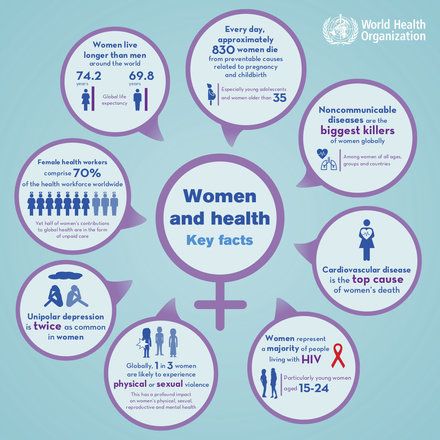
Key Women’s Health Issues and How to Manage Them
Introduction
As women go through various stages of life, they face several unique health challenges. These issues can range from reproductive health to mental well-being and require proactive management and care. In this article, we will discuss some of the key women’s health issues and provide tips on how to effectively manage them.
1. Reproductive Health
A crucial aspect of women’s health is reproductive health, which entails menstrual cycles, pregnancy, and menopause. It is essential to maintain regular menstrual cycles as irregularities can be indicative of underlying health conditions. Additionally, managing symptoms associated with menopause, such as hot flashes and mood swings, is crucial for overall well-being. Regular gynecological check-ups and open communication with healthcare professionals can help address any concerns and ensure optimal reproductive health.
2. Breast Health
Breast health is of utmost importance as breast cancer is one of the most prevalent forms of cancer affecting women. Regular self-examinations and mammograms can help detect any abnormalities early on. Alongside screenings, adopting a healthy lifestyle with regular exercise, a balanced diet, and limited alcohol consumption can contribute to maintaining optimal breast health.
3. Mental Health
Mental health is an integral part of overall well-being. Women, in particular, may face unique mental health challenges such as postpartum depression, hormonal imbalances, and higher rates of anxiety and depression. Prioritizing self-care, seeking therapy or counseling when necessary, and maintaining a support system are key strategies to manage mental health issues effectively.
4. Heart Disease
Heart disease is often associated with men, but it is a significant concern for women as well. Taking preventive measures such as maintaining a healthy weight, regular exercise, managing stress, and avoiding smoking is crucial in reducing the risk of heart disease. Routine check-ups, including blood pressure and cholesterol screenings, allow for early detection and prompt management.
5. Bone Health
Women are at a higher risk of developing osteoporosis, a condition characterized by weakened bones. Adequate calcium and vitamin D intake, engaging in weight-bearing exercises, and avoiding smoking and excessive alcohol consumption are key factors in maintaining optimal bone health. Healthcare professionals can assess bone density through specialized tests and provide appropriate guidance on managing bone health.
Conclusion
Women’s health is multifaceted and requires proactive management and care. Prioritizing reproductive health, breast health, mental health, heart health, and bone health is crucial for overall well-being. Ensuring regular check-ups, adopting healthy lifestyle habits, seeking professional help when needed, and maintaining open communication with healthcare providers are vital steps towards effective management of women’s health issues. By addressing these concerns and taking appropriate measures, women can lead healthier and happier lives.

